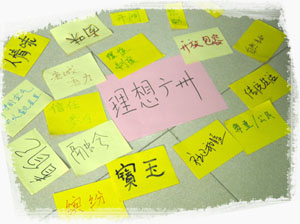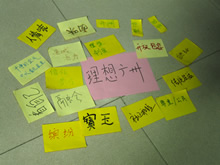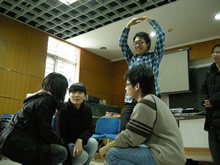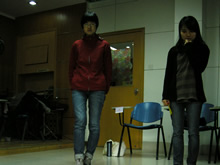By Edward Chan
 What is happiness? What is everyday living?
What is happiness? What is everyday living?
If you no longer have to worry about your daily bread,
Then why bother holding on to your past, and why keep thinking your past was better than now?
What is development? Why do we have to develop?
If the whole matter of development is for the goodness of our surviving,
Then for what reason is it that the more we speed up our development, the less space we have, and the less diversity we have?
All this, has urged us to ponder, yet without answers.
Some light perhaps is sparkling in our everyday living.
For thousands of years, we have unconsciously followed our ancestors’ wisdom and ways of living by submission to Nature.
Perhaps the answers are here – just that we can’t see them, we’ve forgotten them.
Perhaps the answers are here – just that our room for self-reflection has been lost.
Back to recent discussion on urban development in Guangzhou in recent years, and on indigenous culture, held on 27th March 2011. About 20 co-partners took part in “Following Nature, Seeking wisdom, and Pondering development – Sustainable living and its Exploration Scheme.” This first workshop held in Guangzhou gave us a better understanding of Guangzhou’s indigenous culture and the wisdom of traditional ways of living. We also shared practical experience from other cities, and searched for the right kinds of sustainable living.
The partners came from different teams; their concerns covered indigenous culture, preserving old towns, natural ecosystems, promoting community support of agriculture and community co-workers. They shared perceptions of “the Ideal Guangzhou” and concluded it had several dimensions: “culture preservation”, “natural environment”, “citizen morality” and “participation platforms/spaces”. Finally they tried to reach a potential attempt of practising sustainable living.
| + Click thumbnail to enlarge photo | ||||||||
|
|
|
||||||




